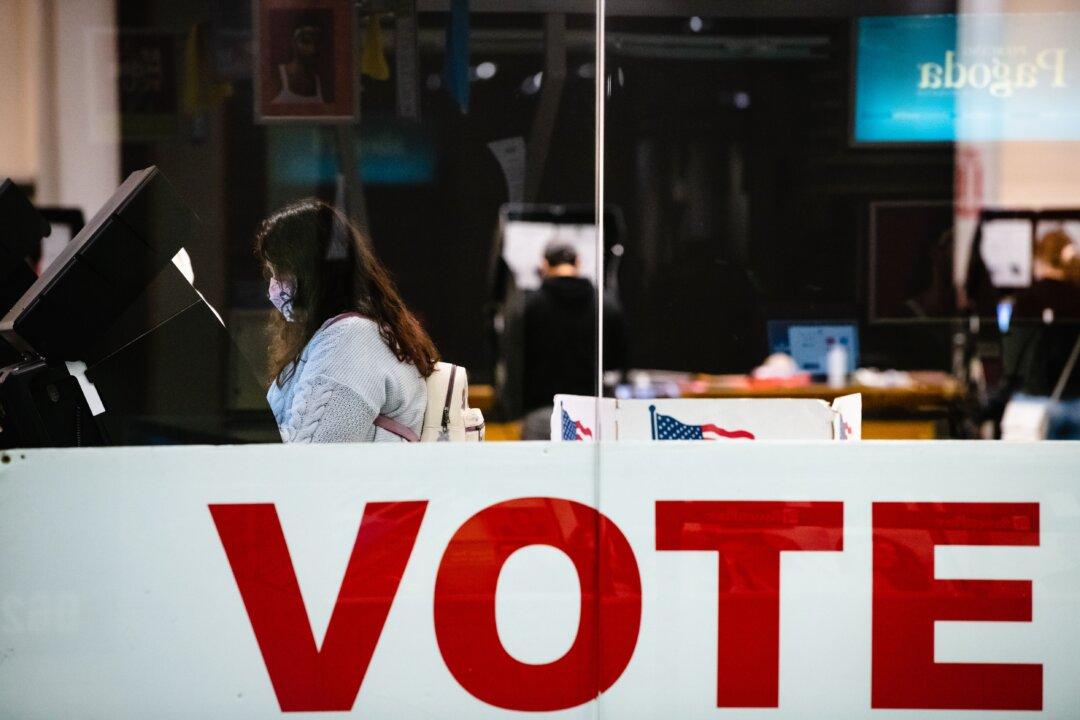A federal court struck down two Texas state laws that forced voters to refrain from wearing clothing with political messages on them in or near polling places as unconstitutional infringements of free speech.
According to Pacific Legal Foundation (PLF), a national public interest law firm based in Sacramento, California, that represented plaintiff Jillian Ostrewich, the laws gave thousands of election workers across the state unlimited discretion to confront any voter wearing a T-shirt, hat, or button related to any past, present, or future candidate, political party, or ballot measure.





